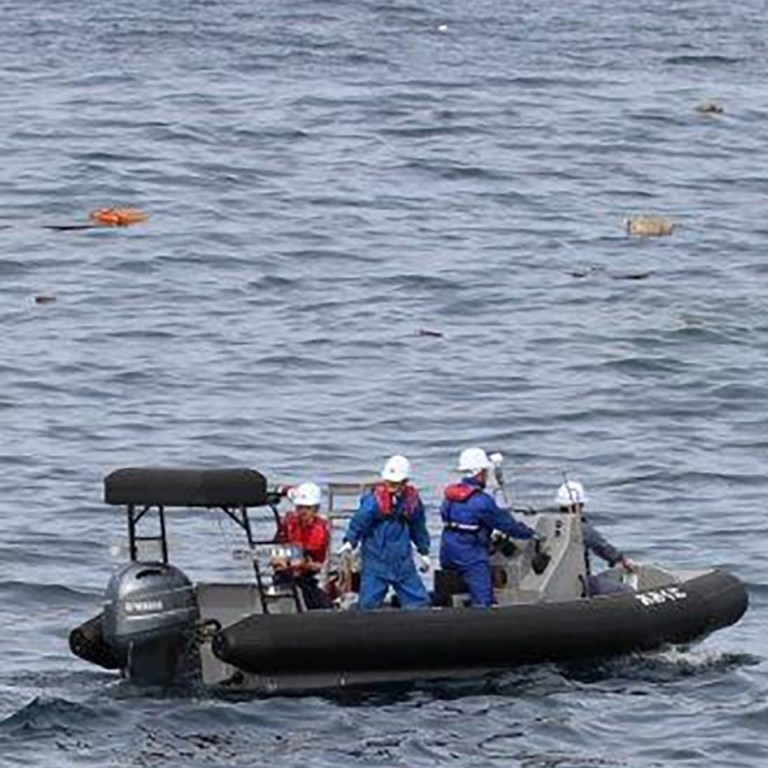
Can Japan stop ‘aggressive’ North Korean fishing boats in their tracks?
- Coast Guard rescued 60 North Koreans earlier this week after sinking their boat about 350km off the Noto peninsula
- Tough tactics have broad support – indeed, many in Japan have urged an even more ruthless approach
A North Korean boat was on Monday confronted in the Sea of Japan by a Coast Guard vessel. The encounter ended with the Korean ship being sunk after a collision about 350km off the Noto peninsula.
Japan lodges protest with North Korea after boat crew threatened to fire at its coastguard
The incident occurred in an area known as the Yamatotai fishing grounds, popular with Japanese crews seeking squid. In recent years, though, Korean vessels have arrived in growing numbers. Officials said they have issued 5,315 warnings to North Korean ships in 2018 alone.

North Korean crews are under pressure from their government to meet catch quotas and are being forced to venture further out to sea and take more risks as their own waters have been largely fished-out, Brown said. There are also diminishing catches in Japanese waters, further heightening the likelihood of confrontations.
“There is boldness in their actions and instead of leaving they’re actually choosing to clash with the Coast Guard,” he said, citing an incident earlier this year when a crew member of one North Korean vessel brandished a rifle when confronted by Japanese authorities.
“I would say it is almost inevitable we are going to see more of the same. Having thousands of boats multiplies the risk of physical clashes and incidents of ships simply running into each other, which makes this an urgent problem for Japan.”
We must be cautious and they [North Koreans] use that to their advantage
Tokyo’s hard line against North Korea vessels enjoys broad support – indeed, many Japanese netizens have urged an even more ruthless approach, including arrests of crews and seizures of vessels to be used as bargaining chips for the return of Japanese abducted by North Korea.
Hiromichi Moteki, the acting secretary general of the Society for the Dissemination of Historical Fact, agreed that Tokyo should be firmer in its response.
“A few weeks ago, Russian troops boarded North Korean boats found fishing illegally in their waters, impounded the ships and arrested the crews,” he said. “Japan should do at least the same thing. Those boats should be brought to Japan and only released when punishments have been decided by Japanese courts.
North Korean fishermen wash up in Japan after sanctions drive them to desperation
“Unfortunately, North Korea knows that Japan must tread carefully because there is still the possibility of negotiations on the abducted Japanese. We must be cautious and they use that to their advantage.”
Others called for Tokyo to adopt the approach of the Indonesian government, which has blown up fishing boats found operating illegally in its waters. However, Brown said Japan would be unwilling to copy that tactic.
“It’s not the Japanese way,” he said. “Japan’s response has been to force these ships to leave and only as a last resort board vessels and try to take crews captive. That is not going to change.”

